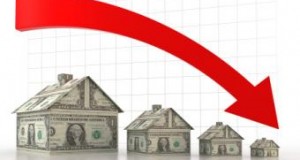Before the recession about 15 percent of Americans had a FICO score less than 600, while after the recession about 25 percent of Americans had the same low score, according to a study released in 2010 by Deutsche Bank. More recently, the Urban Institute and Encore Capital Group's Consumer Credit Research Institute found that one-third of consumers with credit files had debt in collection. That report, which examined TransUnion credit data from 2013, found 77 million Americans have debt 180 days past due, with the average person having about $5,178 in credit card, utility bill, or medical bill debt.
Read More »Educated, Wealthy Population Going Against Historic Trend by Heading to Urban Areas
Today, cities resemble a “new donut” pattern with a resurgence of downtown and historic centers, often driven by young adults. Young adult, ages 22 to 34, population has grown in every city in the country. This Millennial population has been shown to be interested in neighborhoods with walkability, and less interested in having a home with a big back yard or close to a good school district. Residents in the center of cities now tend to have a higher level of education than before, with new college grads moving to metropolitan areas. This influx of new residents has created a resurgence of development in cities.
Read More »Google May Bring Mortgage Comparison Tool to U.S.
Because Compare is an ad product, Google makes money every time a consumer makes a decision based on information from one of its recommendations. The more money at stake, the more money Google makes in the end. Entering the mortgage industry could mean big profit for Google based on Google trends. Trends show people are searching for information on mortgage loans more than car insurance and almost as much as credit cards.
Read More »CoreLogic Reports Home Prices Up 5.7 Percent
Home prices nationwide remain 12.9 percent below the peak of April 2006. Home prices, excluding distressed sales, were 8.6 percent below the peak. Maryland and Connecticut were the only states which showed negative home price appreciation. Four states including Colorado, Texas, New York, and Wyoming hit new state highs for their growth in home appreciation.
Read More »Government Housing Finance Policy Specialist Discusses FHFA’s Conservatorship of GSEs
Stegman said the Administration would not end the conservatorship of the GSEs without a viable alternative that provides that elusive balance between eliminating taxpayer risk while still allowing credit access.
Read More »Survey Shows Millennials Not Entering Housing Market
Student loan debt, a slow lag in finding employment, and wage stagnation were cited as some of the reasons why millennials have yet to enter the housing market in record numbers. About 70 percent of students walked away with loan debt in 2013 and the average student racks up almost $30,000 in debt by graduation, according to an annual report on loan debt released by the Institute for College Access and Success.
Read More »Consumer Sentiment Falling Despite Rosy Economic Forecast
The U.S. Bureau of Labor Statistics Employment Summary released in early February reported an average hourly wage gain of 12 cents month-over-month, from $24.63 to $24.75. Still, U.S. Treasury Secretary Jacob Lew said after that report was released that more wage growth is needed in order for the economy, and hence the housing industry, to recover.
Read More »Wells Fargo Continues to Battle FHA Suit
Wells Fargo is alleged to have received insurance money from the U.S. Department of Housing and Urban Development even after some loans had defaulted. The bank allegedly submitted over 100,000 FHA loans said to be under HUD compliance and eligible for insurance, knowing that the loans were too risky and did not qualify.
Read More »Pending Home Sales Rise for Fifth Consecutive Month
NAR Chief Economist Lawrence Yun said traditional buyers saw more favorable conditions entering the market this year, citing all-cash sales and sales to investors were both down from a year ago, which created less competition and relief for buyers who still face the challenge of seeing limited homes available for sale.
Read More »Strengthening Employment, Rising Incomes Fuel Fannie Mae’s Positive Economic Forecast
The strengthening employment sector, declining commodity prices, and rising income prices are some reasons 2015 is set for a pickup, according to Fannie Mae’s Economic & Strategic Research (ESR) Group.
Read More » theMReport.com Your trusted source for mortgage banking news
theMReport.com Your trusted source for mortgage banking news







